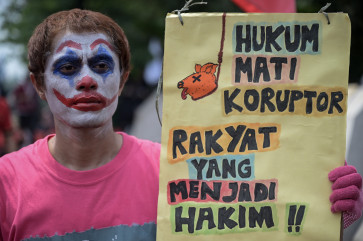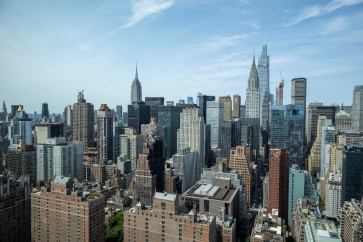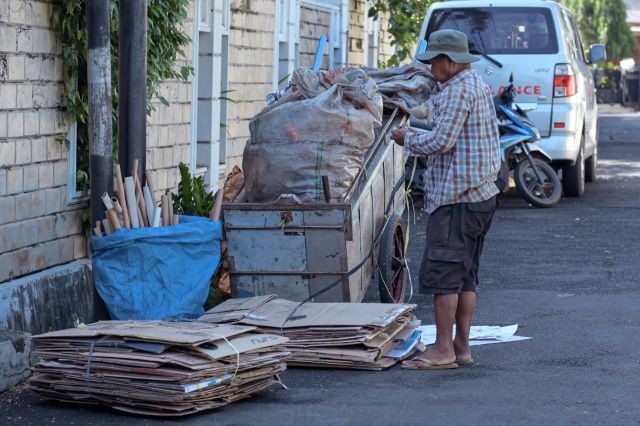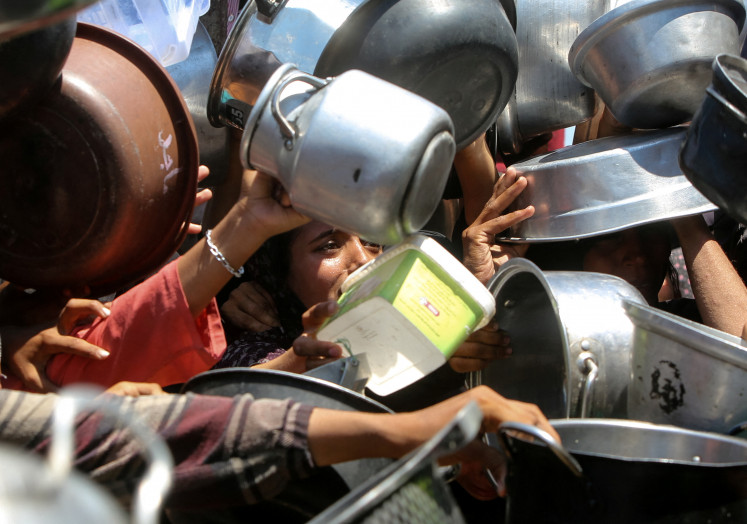Popular Reads
Top Results
Can't find what you're looking for?
View all search resultsPopular Reads
Top Results
Can't find what you're looking for?
View all search resultsSoutheast Asia critical to humanity
Indonesia has pledged to cut its carbon emissions by 26 percent from the current 2
Change text size
Gift Premium Articles
to Anyone
I
ndonesia has pledged to cut its carbon emissions by 26 percent from the current 2.1 gigatons of carbon dioxide equivalent (CO2e) by 2020. Yet the country, with the third-largest tropical forest coverage in the world, is still struggling to protect its environment. Kumi Naidoo, Greenpeace International executive director, talked to The Jakarta Post's Nadya Natahadibrata about the preservation campaign. The following are excerpts from the interview.
Question: Rainbow Warrior III has been traveling across Indonesia over the past month. Can you share Greenpeace's findings from the journey?
Answer: Rainbow Warrior's journey across Southeast Asia has shown that Southeast Asia is still one of the most precious biodiversities in the world and we know that in the last 50 years, we lost about 35 percent of rainforests. What we saw was exceptional beauty and exceptional mass natural assets, which are critical for the survival of humanity now. It is extremely important that the policy makers throughout Southeast Asia recognize that major natural assets are being threatened.
What do you think about Indonesia's commitment to protecting its environment?
The Indonesian government under President Yudhoyono is moving in the right direction. I think one of the legacies will be setting Indonesia on course in regard to general environment protection, not only to protect forests and oceans but also to fight climate change. That doesn't mean there's not much more that needs to be done. I love the fact that the president was so open in his speech to the media when he said, 'please feel free to criticize us if we not moving fast enough,' Only a few political leaders do that and I do believe that absolute credit should be given to him for actually encouraging politicians in Indonesia. I hope that his legacy will carry on to the next president. I told him that so much work was needed and that Indonesia has the potential to turn threats into opportunities.
What are the potentials and opportunities?
All the studies that have been done show that we have to stop investing in oil and coal gas as they are basically creating climate change. Any new investments should go to green renewable energy options. Indonesia has a lot opportunities. There is solar opportunity, wind opportunities, geothermal, and then we also have biomass. Because Indonesia is surrounded by water, it has tidal wave power. Not only could we reduce emissions, [and] get an unending source of energy but if we did it in smart way, we could create millions of new jobs for Indonesians. It's a win for job creation, climate change and the environment. There is no justifiable reason why we should not move into renewable energy.
A study by UNDP shows that Indonesia is struggling to combat deforestation, saying that the country had only achieved a score of 2.33 on a scale of one to five. What do you think of this?
The moratorium is the first step. Because there are massive forests and large chunks, wherever there aren't any requirements for licenses from the government, activities happen. The difficulty is, the government cannot police it all.
In fact, we, in the Amazon, are working with the federal government to help them police certain sections. So, yes, the next step is to ensure that policies are being implemented properly.










